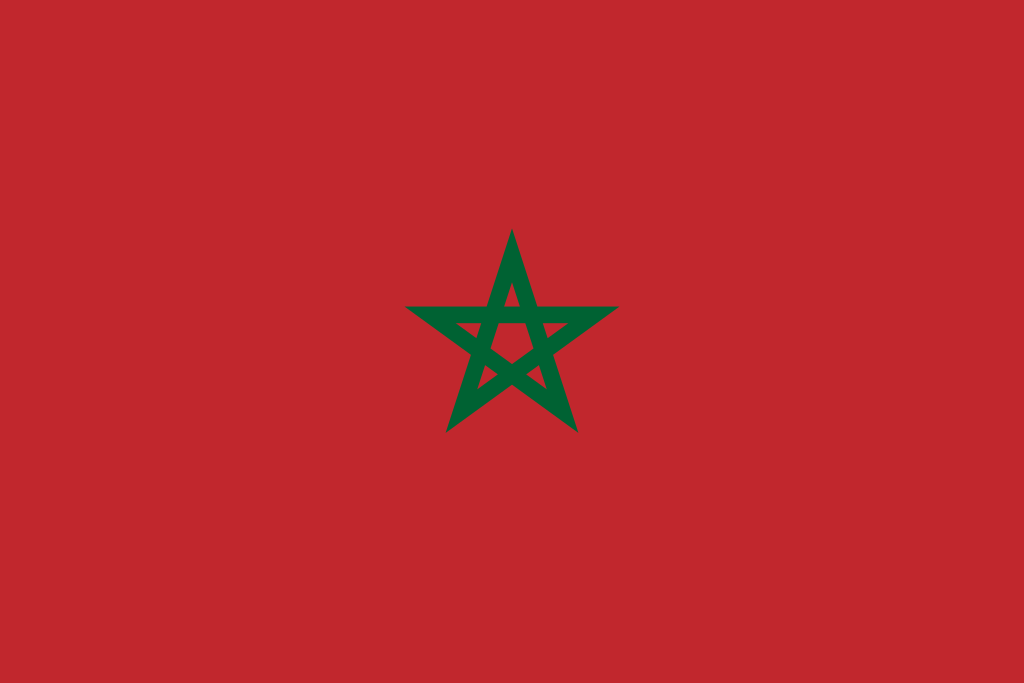While the world is struggling to find ways to deal with the Covid-19 pandemic, Morocco has been a precursor in its fight against the virus, and in the preservation of human lives. As early as it appeared on its soil, the Kingdom adopted a series of measures based on a preventive and proactive approach to contain the outbreak, thanks to the clear and smart vision of His Majesty King Mohammed VI.

Morocco’s plan to combat the coronavirus pandemic is multidimensional, and includes diverse and far-reaching measures to curb the spread of the virus and counter its economic and social impact. As soon as the very first cases of Coronavirus appeared in Morocco, the country closed its maritime borders, suspended all flights from and to Morocco until further notice, and decreed a sanitary emergency state since March 20th.
To contain the pandemic, the Kingdom closed all schools and universities, as early as March 16th, and set up an e-learning platform, to which students can access using the free of charge internet offered by Moroccan network providers.
All worship places and all usual gathering venues have been closed, while supermarkets, groceries and banks continue to provide the necessary services. Public, private and military hospitals, which increased their Intensive Care Unit’s capacity from 1600 to 3000 beds, continue to welcome their patients in the best possible conditions, thanks to an exemplary mobilization of Moroccan civil and military medical staff.
[At the time of writing, there have been 1661 positive cases to Covid-19, 118 deaths and 177 recovered in Morocco].
Since March 23rd, Moroccan factories started producing three million sanitary masks a day, with a goal to achieve five million next week. The country will even be able to export its production’s surplus. Wearing masks became compulsory since April 7th for anyone authorized to move around, and national manufacturers are supplying masks to local shops at controlled low prices.
In parallel, Morocco has started manufacturing its own made in Morocco ventilators with oxygen masks, with the first batch of 500 expected by next week, to help meet demand caused by the Covid-19 pandemic. Doctors and engineers from the public sector helped design the Ministry of Health approved non-invasive ventilators with a capacity of 3,000 hours of use. The production of ethyl alcohol, necessary for the manufacture of disinfectant products, in particular antiseptic gels, has been increased to meet demand. These efforts were praised by the World Health Organization and international experts.
Public authorities have been highly mobilized to provide support to the populations most affected by the slowdown in economic activity, in particular through the Special Fund launched by His Majesty King Mohammed VI, which has so far collected more than 3 billion euros in donations.
A Royal initiative which has aroused a great surge of solidarity in the country, insofar as this fund continues to receive voluntary financial contributions from the main companies of the Kingdom, insurance companies, banks, senior state officials , parliamentarians and Moroccan citizens, who joined in this act of solidarity to help the most disadvantaged.
These funds will be used to finance the suspension of social charges weighing on companies and to grant them additional bank credit lines guaranteed by the State. Furthermore, the maturities of bank loans to individuals due by the end of June have been postponed in the form of longer loan terms. Also, all Moroccans affiliated to the social security system will receive, until the end of June, up to 200 Euros per month, equivalent to 75% of the minimum wage. In addition, an Economic Watch Committee was created to assess and anticipate the direct and indirect economic impacts of Covid-19.
During this period of confinement, when all cultural activity ceased, several Moroccan cultural institutions have provided support to the population, by offering free online entertainment. In that respect, the Moroccan Cinematographic Center offers a selection of 25 Moroccan films that Internet users can watch from their home. In addition, the National Library of Morocco put online a significant number of audiobooks in different languages, and the National Foundation of Museums of Morocco also offers free online museum visits through a 360 ° virtual immersion.
Last but not least, Moroccan diplomacy has been working continuously to provide the best assistance to Moroccan nationals stranded abroad, by providing them with free accommodation, food, medicines and psychological support for those in need. A tight cooperation between the Ministry of Foreign Affairs of the Kingdom and the foreign Diplomatic Missions in Rabat has also been initiated to organize around 500 special flights to bring 80 000 tourists, who happened to be in Morocco when the borders were closed, back to their homes. The Moroccan Embassy in Belgrade has, for instance, set up a crisis unit to assist any Moroccans in Serbia and in Montenegro during these tough times. Permanent contact with them has been established and so far, no case of contamination or death was reported. The Moroccan community is keen on respecting the sanitary instructions and measures imposed by their country of residence.
To conclude, the King’s swift response and comprehensive socioeconomic relief measures to mitigate the fallout of Covid-19 were hailed worldwide. Several international publications in Europe and across the Atlantic Ocean, as well as many international think-tanks lauded Morocco’s efforts and highlighted the country’s quick response.
The combined exceptional precautionary and relief measures adopted by Morocco make all the difference for those cooped up in their homes, and as long as all components of Moroccan society continue to pull together, showing solidarity and generous self-denial, we shall get through this unprecedented global sanitary crisis.